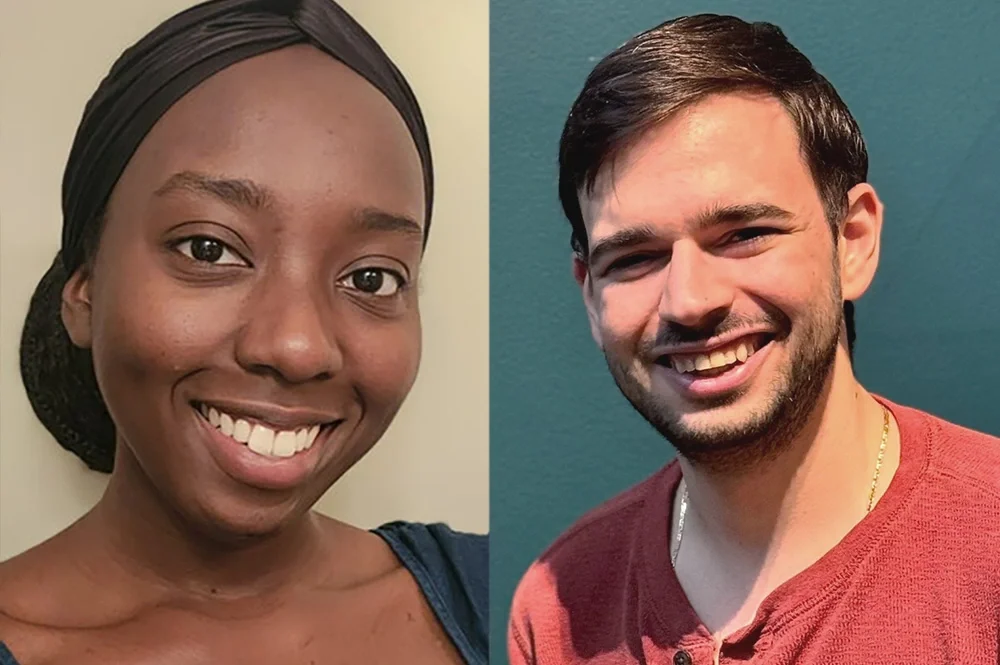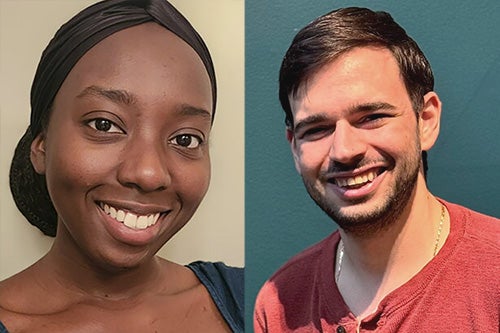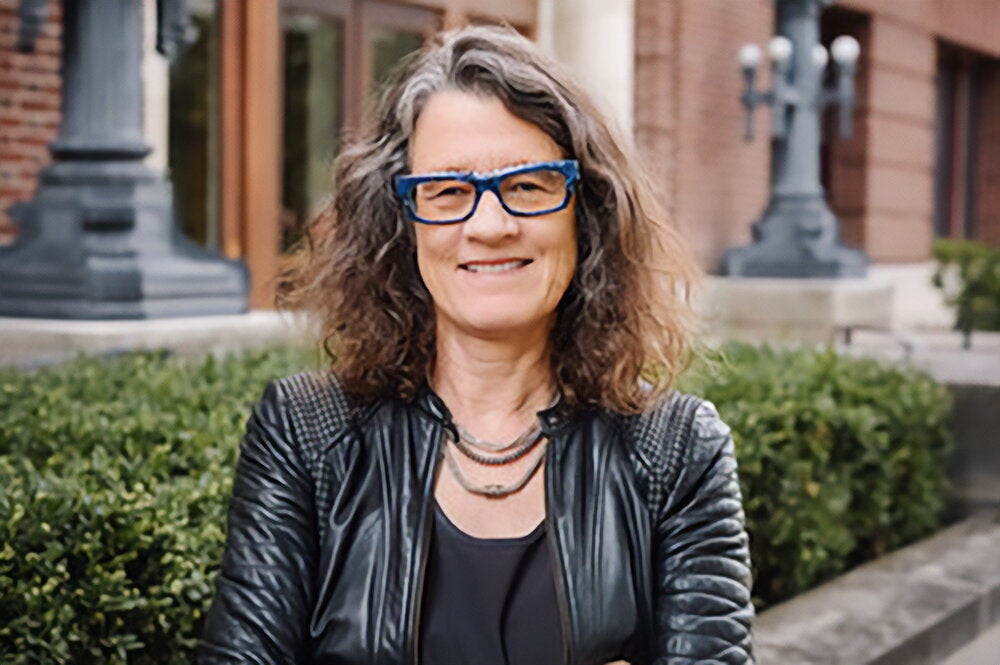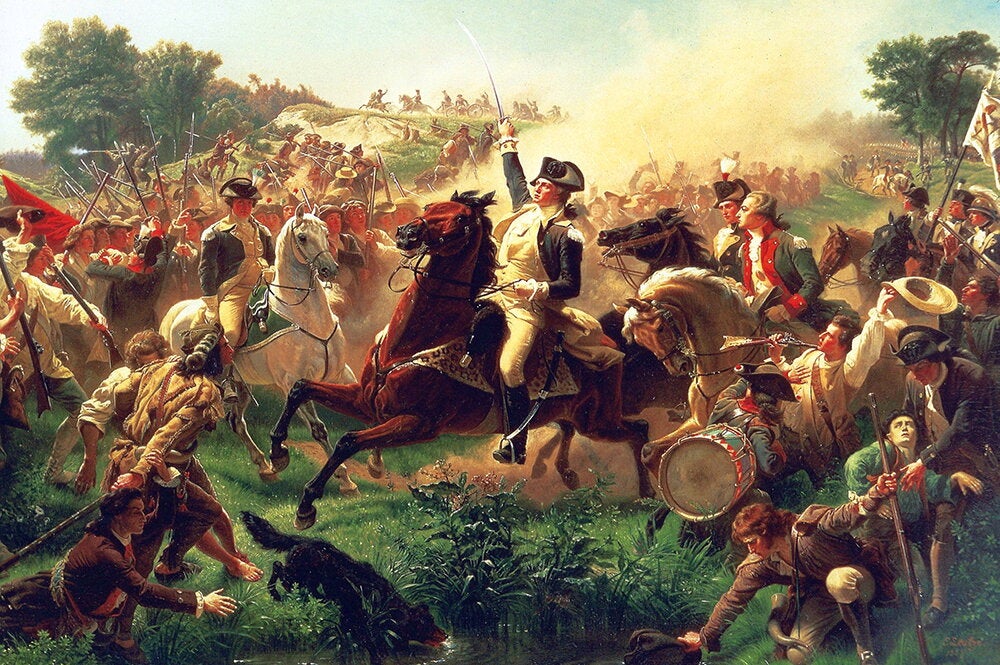

Two newly minted PhD scholars have been selected to be part of the College of LAS Public Humanities Fellow program, which gives post-doctoral researchers the opportunity to pursue a public engagement project with the Humanities Research Institute. Descriptions of the first cohort of awardees within LAS follow.
Alonza Lawrence, a post-doc in the School of Music within the College of Fine & Applied Arts, was also selected for the program.
Exploring a community digital history project
This fall, the Department of History welcomed Chelsey Smith as a public humanities post-doctoral fellow. Smith is a historian of 19th century Jamaican history and her research interests include education, race, and labor in the Caribbean and Latin America.
During the post-doc, Smith hopes to explore a community digital history project, write an article, and start revising her dissertation into her first book. In year two, she will become an assistant professor in the Department of History. For Smith, history at Illinois felt like the “perfect fit” and she was impressed by the mentorship and resources provided to junior faculty members. On her first visit to campus, she was charmed by the similarities between Champaign-Urbana and her hometown in Arkansas. The decision to begin her career at Illinois was a “no-brainer.”
Smith’s dissertation uses education as a lens to understand the lives of Afro-Jamaicans in the first decades after abolition as they navigated obtaining land, voting, and citizenship rights. She examines the role of British-funded missionary schools for both children and adults, and how the missionaries acted as what she calls partial allies to free people. She charts how education created opportunities for Afro-Jamaicans but also was a tool the British empire used to control formerly enslaved people.
Her first article, “What is for me is not for my Master,” focusing on land and labor in the apprenticeship period in Jamaica was recently published in the “New West Indian Guide.” This year, she is considering writing an article that compares the narratives of two Black women in the 19th century: “The History of Mary Prince and A Narrative of The Life and Travels of Ms. Nancy Prince.”
Mary Prince’s book was the first narrative by an enslaved person published in Britain and had a large impact on their abolition movement. Nancy Prince was a free Black American woman who wrote about her travels to Russia and Jamaica in the 1850s. Smith is fascinated by their stories and thinks she can use them to explore connections between Black Internationalism and Black Atlantic World scholarship. The idea grew out of a paper on Mary Prince that she wrote for a women, gender, and Black Internationalism class at the University of Pittsburgh taught by professor Keisha N. Blain. Blain encouraged Smith to explore comparing Mary Prince’s story to another Black person’s narrative from the period.
Mentorship has played a key role in Smith’s career and the mentors she’s had throughout her life guided her on her path to becoming a historian. Her earliest memories are of bonding with her father while watching documentaries.
“It all started really with that love I had for history and bonding with my father over it,” she said. “And then just letting it take me where I wanted to go, but it really helped just meeting professors along the way who saw my passion and just nurtured that.”
When she becomes an assistant professor next year, she’s looking forward to teaching Caribbean history and serving as a mentor to her students.
“I really like being in that position of helping students and helping them figure out, you know, their research goals and different paths they can take,” she said.
She hopes to teach students about U.S. involvement in the region, the importance of the Caribbean in world history, and that it’s more than just a vacation spot.
“I have a lot of students who say I've always wondered why things are the way they are today and when they come out of the class, they have so much historical context to help explain things that they just didn't understand in the news,” she said. “It just helps things make more sense to them and gives them context for even things they learned in U.S. history.”
The scholarly pursuit of ancient history
This fall, the Department of Classics has welcomed Eduardo García-Molina as a public humanities post-doctoral fellow. García-Molina is an ancient historian focusing on the Hellenistic period and antiquity, the Seleucid Empire, comparative approaches to ancient imperialism, archives and sources of administrative knowledge in antiquity, and the reception of classics in Latin America and in video games.
García-Molina moved to campus with his husband after earning his PhD at the University of Chicago. The decision to uproot from Chicago was not made lightly, but García-Molina found that the public facing, narrative, and collaborative work in the Department of Classics and the Humanities Research Institute made the opportunity unique.
While he has only lived in Champaign since August, he has already enjoyed the Urbana farmers market and local restaurants like Black Dog Smoke & Ale House, and the area has begun to feel like home.
Some of García-Molina's responsibilities include writing articles, turning his dissertation into a monograph (unified text or book on a specialized subject), and building public humanities initiatives like leading a seminar on ancient politics titled “Smack-Talking in Antiquity: Oratory and Politics in Ancient Greece and Rome” for the Education Justice Project, an initiative that brings university faculty members, students, and staff to prisons to teach college courses for credit.
Much of García-Molina's journey has been characterized by an appreciation for ancient history. History can be viewed as storytelling, García-Molina explained, and trying to put oneself in the shoes of ancient communities helps understand important topics.
“I think I’ve been so drawn to antiquity because it feels like there is this hand inside of you that is always reaching and trying to grasp these moments and full understandings of history,” García-Molina said.
Specifically, he has been looking at the Seleucids, a major empire at the center of Hellenistic culture. Just last spring, he defended his dissertation on the Seleucids and their relationship with language. Inspired by his abuela, or grandmother, who speaks only Spanish, García-Molina examined what it would have been like to deal with the Greek legal system during the Hellenistic period without speaking Greek.
His work allows him to view popular portrayals of ancient times with greater perspective than most. In considering the 2000 film “Gladiator,” for example, Molina-García explained that while much of the film seems absurdist there are bits of truth within it that most people would never recognize.
“Everyone focuses on the man riding the rhino in the new Gladiator II trailer, as it is ridiculous,” García-Molina pointed out. “But one of the other wild elements is the colosseum being filled with water for naval battles. That actually happened, they were called naumachias.”
García-Molina believes that exploring ancient history, and creating discussions about it, including the darker parts, can create a greater understanding for the modern world.
“It’s often levied against people who bring these subjects up about antiquity that this comes from some sort of hatred for the past, that we raise these issues out of bitterness,” Eduardo said. “However, conversations about these more sobering topics not only bring us closer to what the past may have looked like for a broader spectrum of people beyond the literary evidence primarily stemming from societal elites, but can also be used to start conversations about the modern world. U of I’s commitment to having serious conversations about these topics and its initiatives that seek to break down the artificial barriers between universities and their surrounding communities means that these conversations about antiquity can happen and can hopefully lead to more engagement with antiquity.”
García-Molina is delighted to have time to explore his research interests surrounded by colleagues who inspire him.
“It was ultimately the people in the Department of Classics itself that sealed my decision to join it and the broader U of I community,” he said. “My colleagues are not only well-respected in their individual fields, but are also approachable and affable. I have discussions about ‘Warhammer’ and ‘Magic: The Gathering’ with them, and the department just feels lively. This extends to the graduates and undergraduates I’ve met as well. There’s a network of collegial support.”


